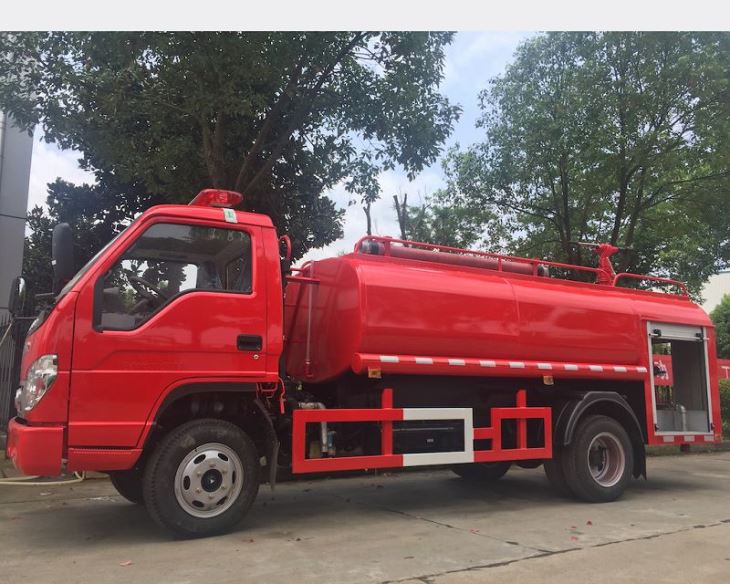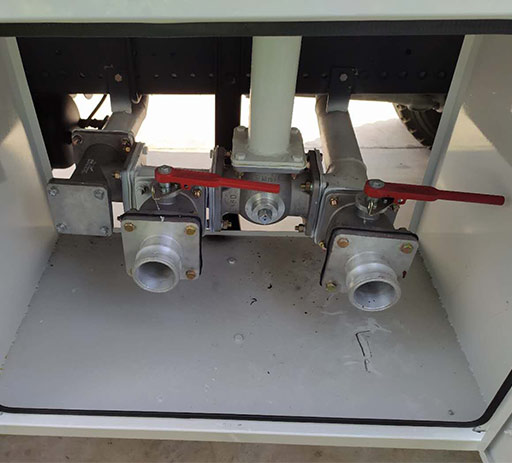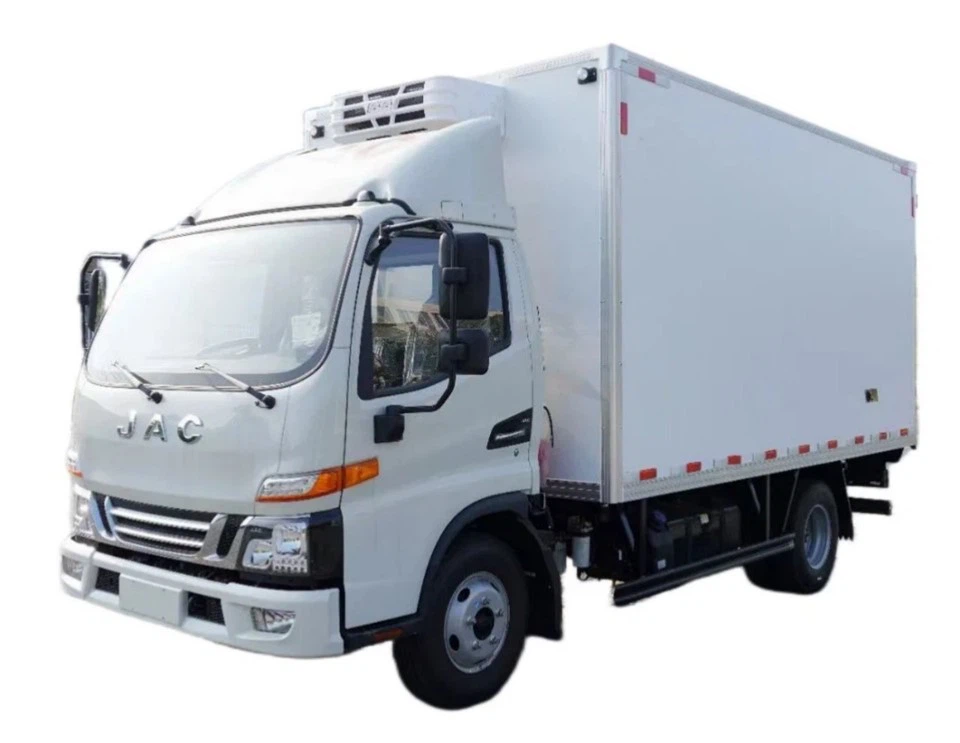Understanding Garbage Compactor Trucks: A Comprehensive Guide

Introduction
Garbage compactor trucks play a pivotal role in waste management systems across the globe. These specialized vehicles are designed to gather, transport, and compress municipal solid waste efficiently. By enhancing the capacity for waste collection and reducing operational costs, garbage compactor trucks are essential in promoting sustainable waste management practices. In this article, we will dive deep into the functionality, types, benefits, and maintenance of garbage compactor trucks, providing practical examples and tips to enhance understanding and engagement with this crucial service.

What is a Garbage Compactor Truck?
A garbage compactor truck is a vehicle equipped with a compression mechanism that compactly stores waste materials. The key components of these trucks include the body, the compaction system, and a loading mechanism. These trucks are indispensable for municipalities, businesses, and industries that need efficient waste disposal solutions.
Types of Garbage Compactor Trucks
Garbage compactor trucks come in various types, tailored to meet the needs of different waste management scenarios. Here are some common types:
1. Front-Loading Trucks
Front-loading trucks have a hydraulic arm that lifts waste bins from the front. These trucks are efficient for commercial establishments and urban areas with frequent waste collection schedules.
2. Rear-Loading Trucks
Rear-loading trucks allow garbage to be loaded from the back. They are often used in residential neighborhoods, where garbage cans are placed on the curb.
3. Side-Loading Trucks
Side-loading trucks feature a lifting mechanism that allows operators to collect waste from the side of the vehicle. These trucks enhance efficiency by allowing drivers to remain within the cab during operations.
4. Compaction Equipment
Some garbage compactor trucks feature advanced compaction technology, capable of compressing waste more efficiently. This results in fewer trips to the landfill, optimizing route time and fuel efficiency.
How Garbage Compactor Trucks Work
The operational mechanism of a garbage compactor truck is straightforward. The process includes:
- Collection: Waste is collected from designated bins and containers.
- Compaction: The compaction system compresses the waste to maximize storage capacity.
- Transportation: Once full, the compressed waste is transported to landfill sites or recycling centers for processing.
The Benefits of Using Garbage Compactor Trucks
Garbage compactor trucks provide numerous advantages that enhance waste management processes:
1. Increased Waste Handling Capacity
These trucks can hold a significantly larger volume of waste compared to non-compacting trucks, resulting in fewer trips to disposal sites.
2. Cost Efficiency
By reducing the number of trips needed for waste collection and disposal, municipalities can save on fuel and labor costs. The compaction also reduces landfill fees due to less waste volume.
3. Improved Sanitation

The ability to compact waste minimizes overflowing trash bins, leads to cleaner streets, and reduces urban pest issues.
4. Environmental Protection
Garbage compactor trucks can be crucial in decreasing carbon emissions due to fewer disposal trips. Enhanced efficiency often results in a more controlled waste management system.
Key Features of a Garbage Compactor Truck
When selecting a garbage compactor truck, certain features are essential to consider:
1. Compaction Ratio
Different trucks provide varying compaction ratios, which determine how much waste can be crushed and stored. Higher ratios signify better efficiency.

2. Payload Capacity
The payload capacity refers to the maximum weight the truck can carry. This varies based on the truck’s design and manufacturers.
3. Safety Features
Modern garbage compactor trucks come equipped with safety mechanisms such as cameras, sensors, and alarms to prevent accidents during operation.
4. Automated Controls
Many newer models incorporate automated controls that simplify operations and enhance safety for drivers and waste collection teams.
Maintaining Your Garbage Compactor Truck
Proper maintenance is paramount to ensure the longevity and efficiency of garbage compactor trucks. Here are some practical tips:
1. Regular Inspections
Schedule regular inspections to assess the health of the compaction system, hydraulic lines, and overall vehicle performance.
2. Clean the Vehicle
Ensure the truck is cleaned after every collection route to prevent buildup of waste materials, which could lead to odors and corrosion.
3. Check Hydraulic Fluid Levels
Maintain appropriate hydraulic fluid levels to ensure efficient operation of the compaction system.
4. Monitor Tire Pressure
Regularly check the tire pressure to ensure safe driving conditions and optimal fuel efficiency.
Choosing the Right Garbage Compactor Truck
Selecting an appropriate garbage compactor truck requires consideration of various factors:
1. Type of Waste
Understanding the types of waste being collected will help in determining the required capacity and compaction ratio.
2. Collection Frequency
Higher collection frequencies may necessitate trucks with larger payload capacities to minimize the number of trips.
3. Budget
Establish a budget not just for the purchase or lease of the truck, but also for maintenance, insurance, and operational costs.
The Future of Garbage Compactor Trucks
As the necessity for sustainability grows, advancements in technology are influencing the design and operation of garbage compactor trucks:
1. Electric Compactor Trucks
Many companies are now exploring electric garbage compactor trucks that promise lower emissions and quiet operation.
2. Smart Technology
Integration with GPS tracking, route efficiency software, and sensors for fill-level monitoring are becoming standard features.
3. Increased Focus on Recycling
The future models will likely focus more on recycling capabilities, with separate compartments for recyclables to optimize waste processes.
Practical Examples of Garbage Compactor Truck Usage
Several cities and companies have successfully integrated garbage compactor trucks into their waste management systems:
1. San Francisco’s Zero Waste Initiative
The city employs garbage compactor trucks in their mission to achieve zero waste. Each truck is equipped with advanced systems to separate recyclables from regular waste.
2. Waste Management’s Fleet
Waste Management, one of North America’s leading waste management companies, utilizes a fleet of garbage compactor trucks to optimize their collection routes and improve overall efficiency.
FAQs About Garbage Compactor Trucks
1. How much waste can a garbage compactor truck hold?
The capacity varies by model, but a typical garbage compactor truck can hold between 10-30 cubic yards of waste, depending on its design.
2. What is the average lifespan of a garbage compactor truck?
With proper maintenance, a garbage compactor truck can last 10-15 years. Regular checks and timely repairs can extend its lifespan.
3. Are garbage compactor trucks environmentally friendly?
Yes, garbage compactor trucks are designed to be more efficient, reducing the number of trips to landfills and the associated emissions.
4. What type of waste can be collected using a garbage compactor truck?
Garbage compactor trucks are typically used for municipal solid waste, commercial waste, and recyclables, depending on their configuration.
5. Do garbage compactor trucks require special training to operate?
Yes, operators must receive specialized training to ensure they can manage the hydraulic and mechanical systems safely.
6. What maintenance is required for garbage compactor trucks?
Regular inspections, cleaning, hydraulic fluid checks, tire maintenance, and proper servicing are essential for keeping garbage compactor trucks in optimal condition.
